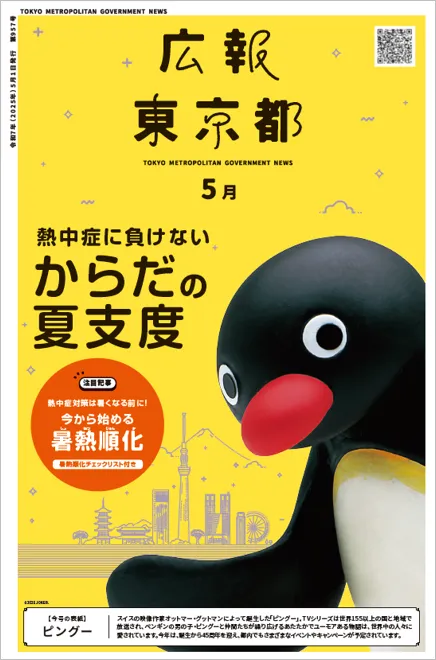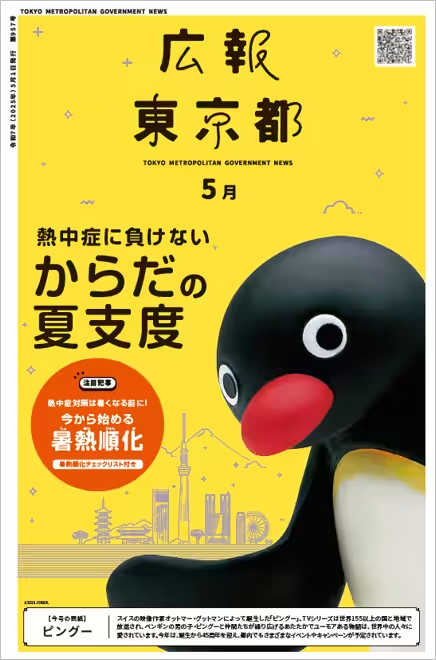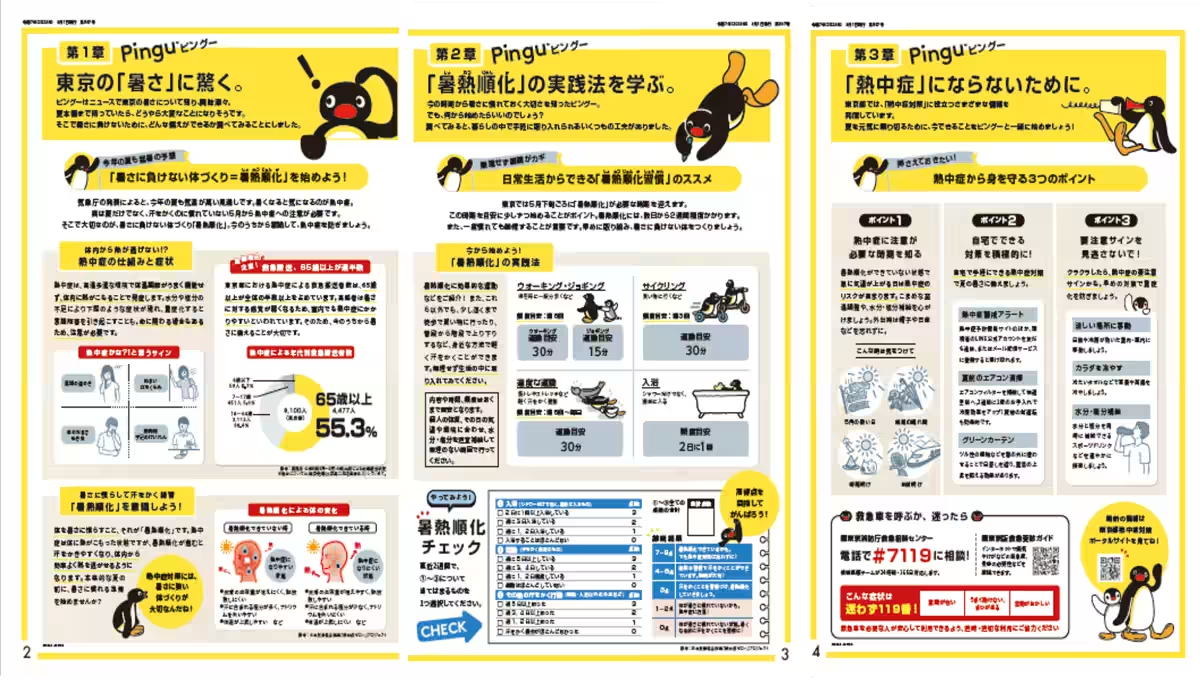

Prepare Your Body for Summer: Beat Heat Stroke with Pingu's Tips
Prepare Your Body for Summer: Beat Heat Stroke with Pingu's Tips
As temperatures rise each year, Tokyo's government is dedicated to keeping residents informed about important health and safety measures. In the May issue of their monthly publication "Tokyo Metropolitan News," a special feature titled "Prepare Your Body for Summer: Beat Heat Stroke" is highlighted, emphasizing the importance of acclimatizing to heat conditions early. The Japan Meteorological Agency has predicted another hot summer, making it essential for residents to start preparing for the heat in early spring.
Understanding the Dangers of Heat Stroke
Heat stroke occurs when the body becomes overwhelmed by heat, leading to complications that can be life-threatening. While many might think of this as a summer-only concern, the reality is that awareness needs to begin as soon as warmer weather emerges, often as early as May. Thus, checking in with personal hydration and acclimatizing oneself to warmer temperatures is crucial. By being proactive, residents can minimize the risks associated with heat exhaustion and heat stroke.
Chapter One: Surprising Heat in Tokyo
Pingu, the beloved character from Switzerland, takes the lead in educating readers about preparing for the sweltering heat. Through engaging storytelling and a fun format, Pingu explores various measures individuals can take to adapt to rising temperatures. The character's charming personality not only entertains but also imparts essential information about summer preparedness.
Chapter Two: Practical Methods for Acclimatization
This chapter outlines Pingu's recommendations for gradually adapting to warmer temperatures. Practical tips include increasing outdoor activity gradually, staying hydrated, and adjusting clothing habits to better suit the climate. These small changes can lead to significant improvements in one’s ability to withstand summer heat.
Additionally, Pingu emphasizes that physical activity should be increased slowly during the transition months, aiming to make the body accustomed to sweating and regulating its temperature more effectively.
Chapter Three: Preventing Heat Stroke
To thrive during the summer, Pingu introduces readers to various strategies that can be incorporated into daily living. This includes setting up reminders to drink water, understanding the signs of heat exhaustion, and utilizing cooling methods like fans or air conditioning. Pingu also provides a checklist for readers to gauge their readiness for summer heat, making it a delightful and fun educational resource for both children and adults alike.
The publication's format includes engaging infographics and illustrations by Pingu, making it accessible to younger audiences as well, all while delivering crucial information to help prevent heat-related illnesses.
More About Pingu
Pingu was born from the creative mind of Swiss film director Otmar Gutmann and has been enchanting audiences around the world for 45 years. Airing in over 155 countries, the charming stories featuring Pingu and his friends have created a special place in the hearts of families. This year, various events and campaigns are planned in Tokyo to celebrate Pingu's landmark anniversary.
To stay updated with Pingu's adventures, check out the official website Pingu Official Site, or follow him on social media through Instagram, X, and TikTok.
Government Communication Efforts
Tokyo's "Tokyo Metropolitan News" is published monthly, delivering crucial information about local governance, events, and public health. With an impressive distribution of approximately 2.19 million copies, it reaches households through newspaper inserts and various public venues including libraries and public transportation stations. The paper has been an enduring source of community information since its inception in March 1950, evolving into various editions catering to both adults and children since then.
With a focus on community health and safety, the government encourages all residents to access these valuable resources as they prepare for the upcoming summer heat.
For more information and to read past issues, visit their website: Tokyo Metropolitan News.




Topics Health)










【About Using Articles】
You can freely use the title and article content by linking to the page where the article is posted.
※ Images cannot be used.
【About Links】
Links are free to use.